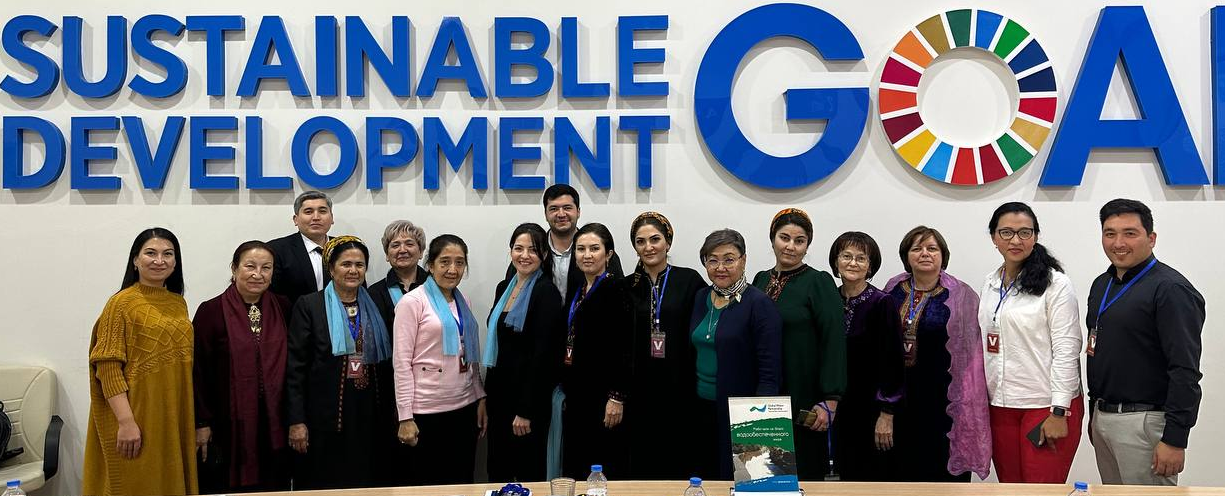On December 7, 2023, a workshop titled "Gender and Water Resources in the Process of Adaptation to Climate Change" was held at the UN office in Ashgabat, Turkmenistan.
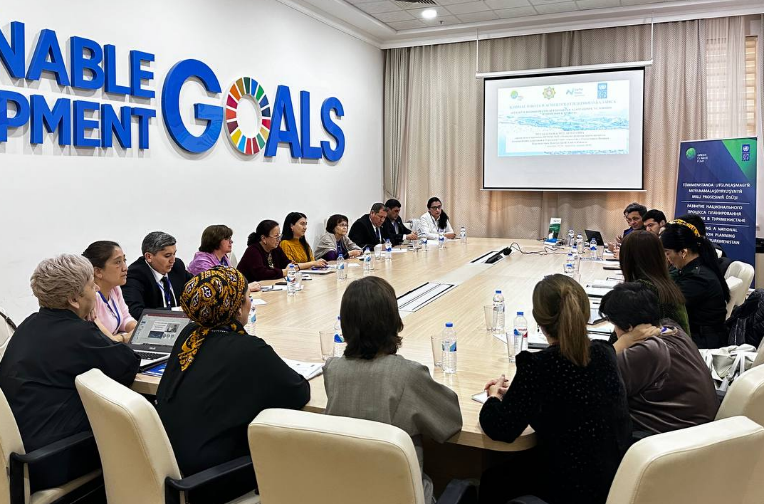 The workshop was organized as part of an assignment to conduct a climate risk and vulnerability assessment in Ashgabat and Dashoguz velayat. It was carried out by the UNDP/GCF project "Development of a National Adaptation Planning Process in Turkmenistan" with financial support from the Global Water Partnership of Central Asia and the Caucasus. Hydrohpil (Austria), a consulting and engineering company, provided methodological support, and its consultants previously held several meetings with representatives of interested departments and organizations.
The workshop was organized as part of an assignment to conduct a climate risk and vulnerability assessment in Ashgabat and Dashoguz velayat. It was carried out by the UNDP/GCF project "Development of a National Adaptation Planning Process in Turkmenistan" with financial support from the Global Water Partnership of Central Asia and the Caucasus. Hydrohpil (Austria), a consulting and engineering company, provided methodological support, and its consultants previously held several meetings with representatives of interested departments and organizations.
The workshop was about gender aspects of water management in the context of climate change. Water resources are one of the main economic development factors in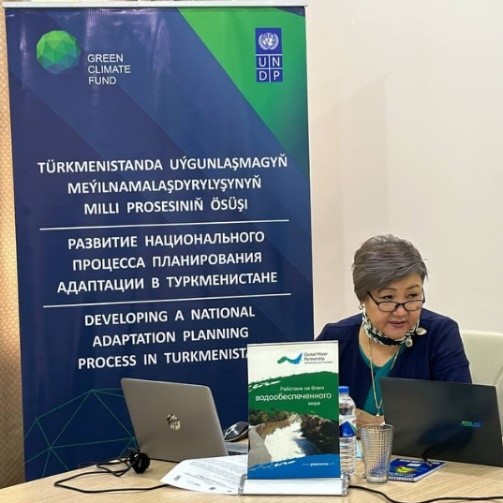 the Central Asian region. Despite the recognition of the role of women in water resource management, gender issues are still relevant, especially in cases where water becomes scarce and competition among users increases. The objectives of the workshop were to raise awareness and promote gender mainstreaming in adaptation planning, achieve a greater understanding of gender issues in water management, and lay the foundation for further cooperation for successful gender-sensitive water management.
the Central Asian region. Despite the recognition of the role of women in water resource management, gender issues are still relevant, especially in cases where water becomes scarce and competition among users increases. The objectives of the workshop were to raise awareness and promote gender mainstreaming in adaptation planning, achieve a greater understanding of gender issues in water management, and lay the foundation for further cooperation for successful gender-sensitive water management.
Representatives of government ministries and departments of Turkmenistan, partner projects, business companies, and public environmental organizations attended the workshop. Among the invited participants were representatives from Dashoguz, Mary, and Lebap velayats. The workshop featured Musabaeva Kasiet, Associate Professor at the National Agrarian Institute in Bishkek (Kyrgyzstan), CWP-Kyrgyzstan Chairperson, GWP CACENA Expert in the field of gender, water and climate change, as a trainer.
The welcoming speech addressed to the seminar participants was made by:
- Maya Ashirova, Project Manager of the UNDP/GCF "Development of the national adaptation planning process in Turkmenistan".
- Jahan Akmuradova, Specialist of the International Cooperation Department of the Ministry of Agriculture of Turkmenistan.
At the beginning of the meeting, the participants were presented with material on the topic: "Gender, Water, and Climate Change," which examined key concepts and terminology related to gender, water issues, and climate change. The meeting participants were invited to hold the event in the format of discussions and dialogue.
The seminar consisted of three main sessions:
1. Session "Global Processes of Climate Change, Climate Risks and Their Consequences for the Environment, Life, and Health of the Population."
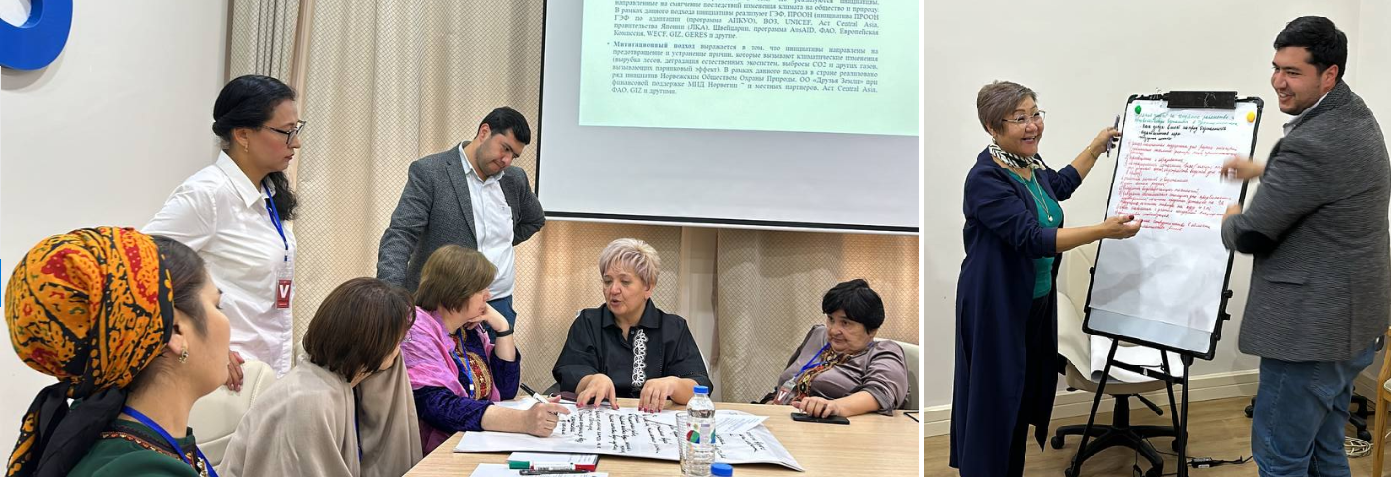 The seminar participants were offered a "practical task" for which the audience was divided into three groups:
The seminar participants were offered a "practical task" for which the audience was divided into three groups:
- Gender aspects of water management in rural areas of Turkmenistan.
- Women leaders in the fight against climate change in urban areas.
- The impact of drought on gender equality and food security in Turkmenistan.
2. Session "Climate Risk Mitigation, Adaptation to Climate Change, Disaster Risk Reduction."
After the presentation by Kasiet Musabayeva, "Gender, Water and Adaptation to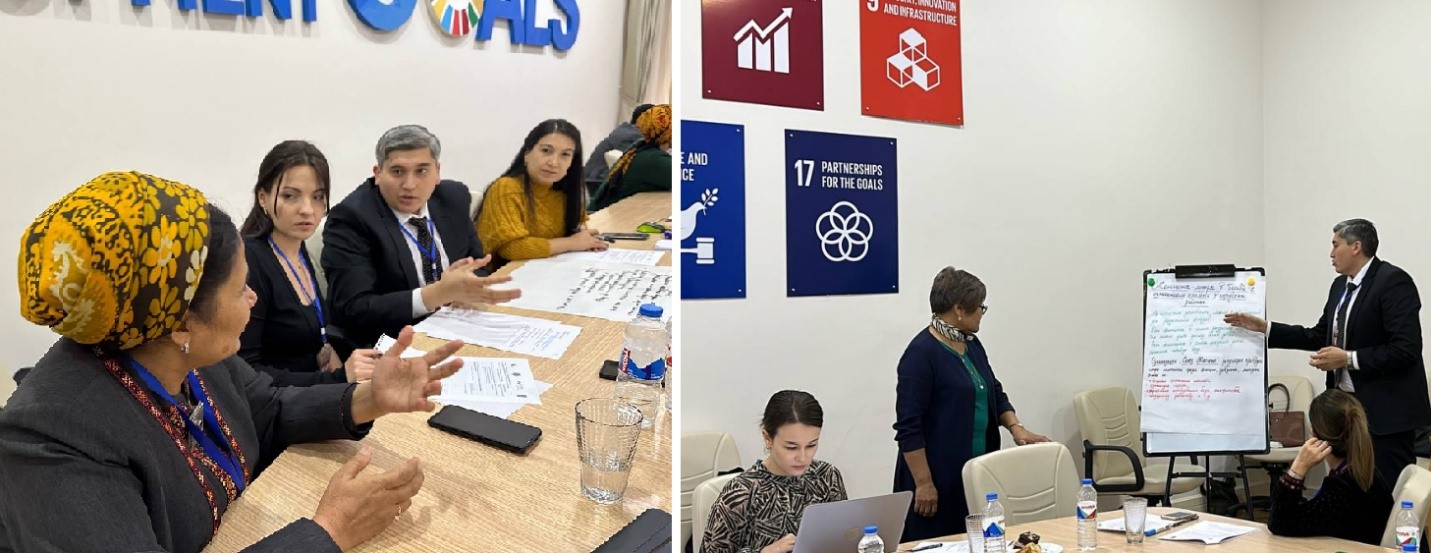 Climate Change," a practical lesson was held on the topics of adaptation, countering climate risks, reducing the risk of natural disasters, and reducing vulnerability to emergencies related to climate risks. Discussions were also held in the three groups identified earlier.
Climate Change," a practical lesson was held on the topics of adaptation, countering climate risks, reducing the risk of natural disasters, and reducing vulnerability to emergencies related to climate risks. Discussions were also held in the three groups identified earlier.
3. Discussion session: Cross-Sectoral Partnerships to Promote Gender Mainstreaming in Climate Change Adaptation Activities.
The participants noted the relevance of the workshop and expressed interest in further cooperation in this area. They thanked the organizers for the meeting and dialogue. In her closing remarks, seminar trainer Kasiet Musabaeva expressed gratitude to the participants for the interesting dialogue and active and fruitful work. She also expressed hope for cooperation in solving the global problem of climate change.
